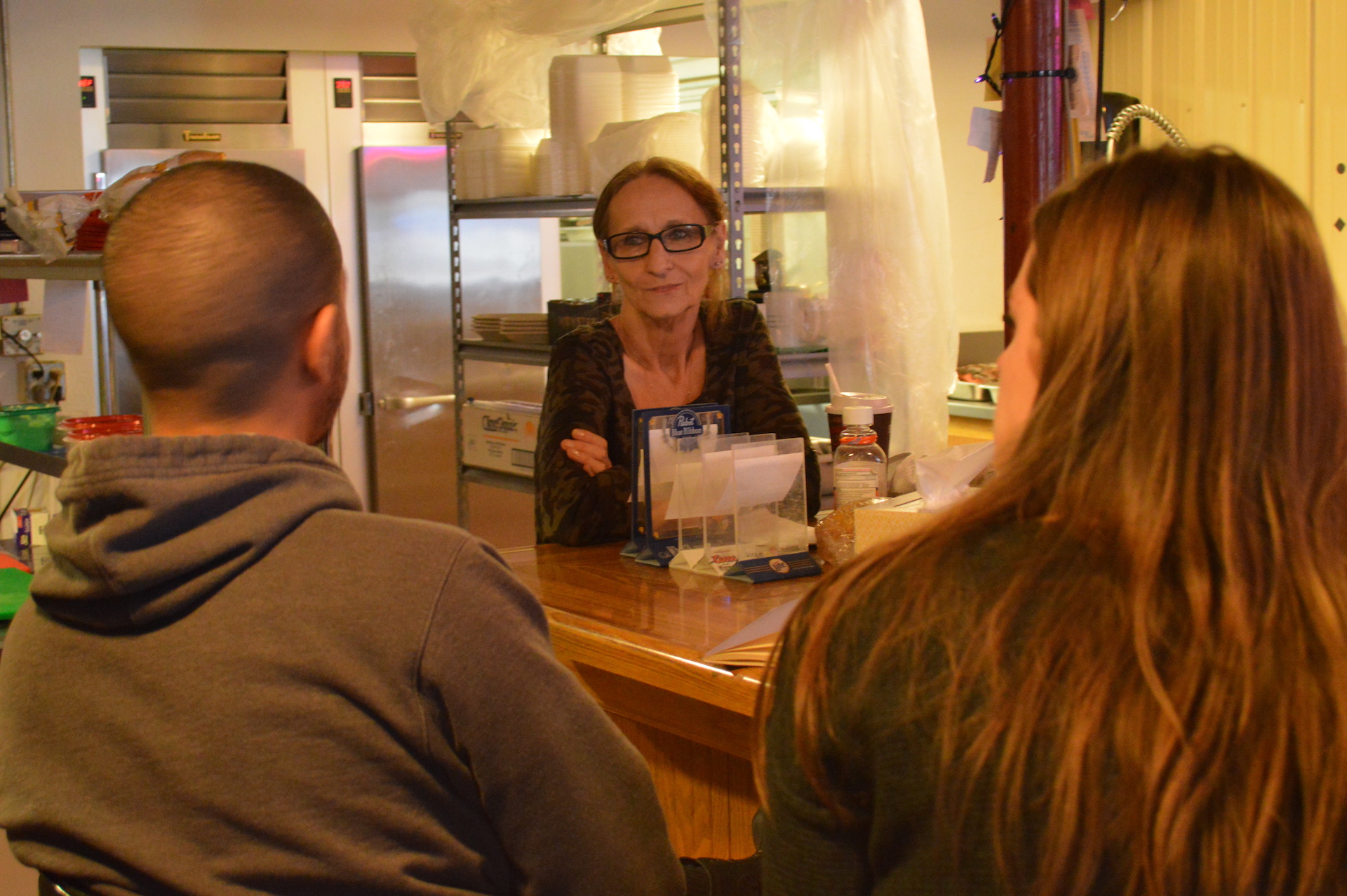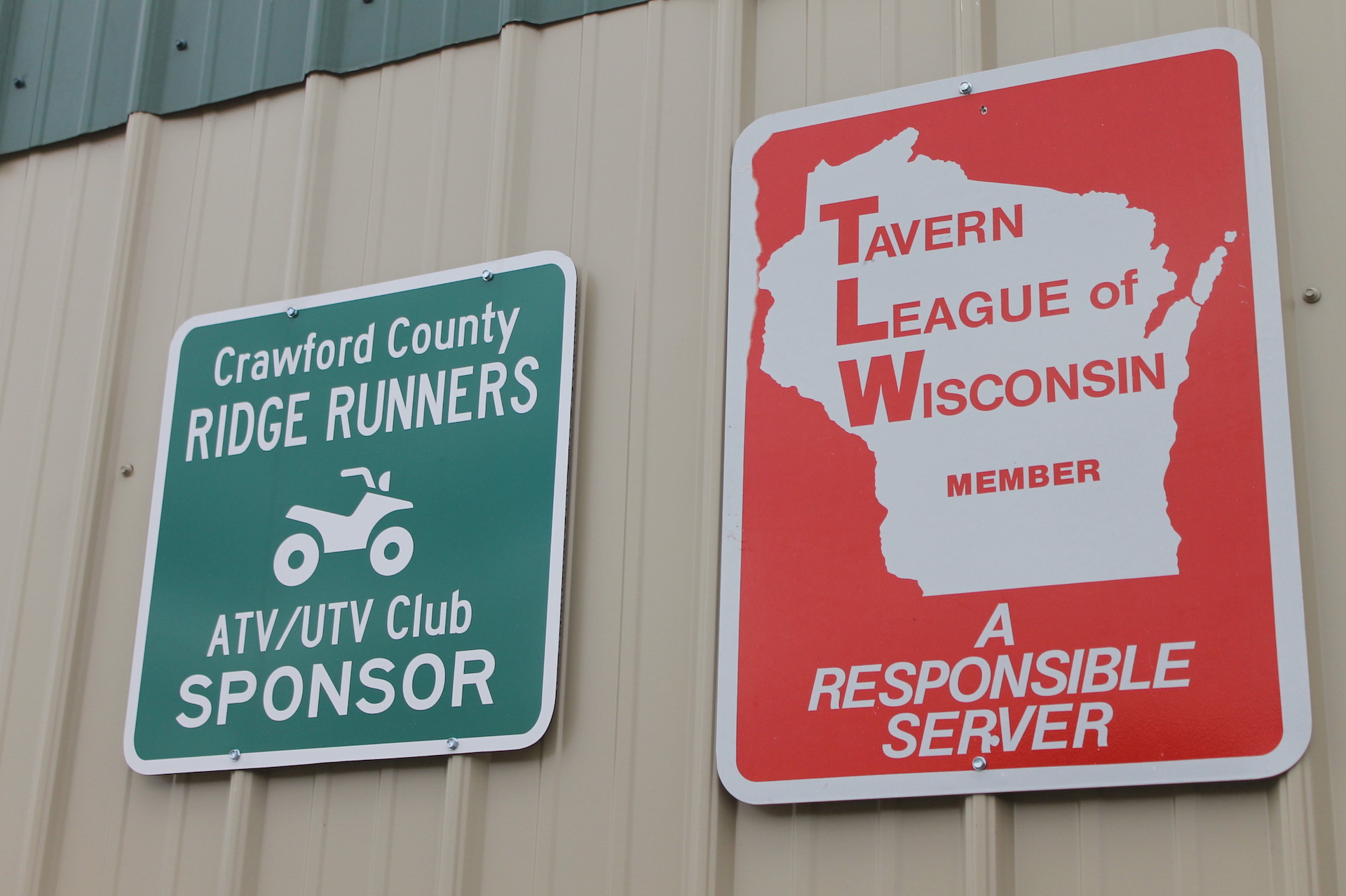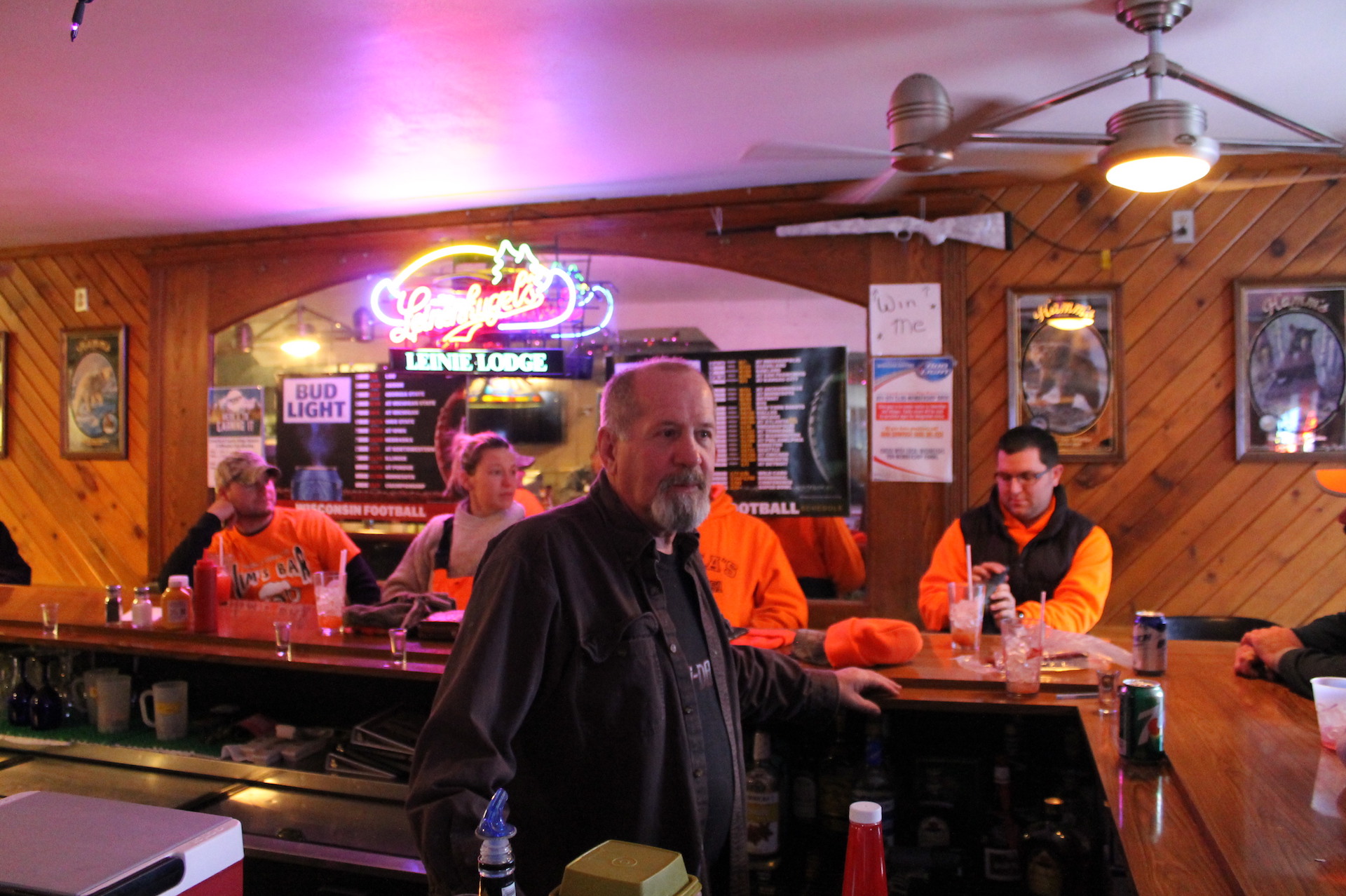There are only two things in Steuben, Wisconsin and they are both bars owned and operated by women. Deep in Trump country, this is a rarity, like children and black people.
Steuben is named after Friedrich von Steuben, a long-dead Frenchman who was recruited by Benjamin Franklin to lend his brilliance in military organization and strategy to the Continental Army during the American Revolution in the late 1700s. Von Steuben arrived in the North America in 1777 and quickly realized that the Continental Army was full of a bunch of dirty dudes. He taught them basic hygiene, how to organize their camps to keep their waste away from where they cooked, and how to build proper bathrooms, among other things. He showed up in time to spend the winter at Valley Forge and, due to his expertise, the majority of the Continental Army survived the harsh winter.
Enlarge

Set to the southeast of the center of Crawford County, Steuben takes up six square miles and is home to 131 people, according to the 2010 census (177 in 2000) and the sign on the south side of town. The town is 99.2 percent white and the other .8 is Native American, though you wouldn’t know it if you didn’t look up the demographic data. According to Bob, the census number includes “Dogs, cats, and the kitchen sink.”
Crawford County is on the southwestern edge of Wisconsin and borders Minnesota. The county flipped from voting for Obama (59%) in 2012 to Trump (50% to Clinton’s 45%) in 2016. Among the poorer counties in Wisconsin, the average weekly wage is $649 or lower, the U.S. Bureau of Labor Statistics’ lowest category for weekly wages.
Lou Atkinson has thick gray hair that used to be black. It’s pulled back into a ponytail because she’s preparing meat for prime rib night at Lou’s R&R, the bar she’s owned for almost 30 years, since, as a single mother with kids, she came to Steuben, Wisconsin. She’s thin and taller than most other people in their 60s. Atkinson has intense, wise eyes that contrast with her reserved demeanor. Her husband, Bob, the other bartender is the opposite, he was a 70s part bro and isn’t shy about it.
Crawford is representative of many Midwestern rural counties that flipped from blue to red in the 2016 election. The polls and experts were wrong; so how did Donald Trump flip these counties that were critical to the election?
“People around here like what he [Donald Trump] says, but not the way he says it. They like the message he’s trying to put across,” Lou said.
Enlarge

Too, Donald Trump fought hard to win the votes that won him Wisconsin and the election. He visited Wisconsin five times between July and October, while Clinton didn’t visit Wisconsin, but once in April.
“A lot of people who I don’t normally see voting voted. An older, ‘redneck’ sort of crowd turned up for the election,” she said. Apparently all Trump’s visits caught the attention of a sort of hidden majority in rural counties.
Lou voted for Clinton because she’s always voted for the Democratic nominee. It’s as simple as that for her. Her husband, Bob, didn’t vote for the president, but voted for all the other offices.
“There’s an old saying: we have to pick between a crook or a liar, but which is which?” Bob said about his decision to not pick a presidential candidate.
“Most people around here? They voted for Trump,” he said. “There were a lot of people out I’ve never seen voting before – ever!”
Lou had some other ideas about how Trump won her town and county, Wisconsin, and the election.
Enlarge

“I think they were afraid of her,” she said about Hillary Clinton. According to Lou, Clinton is a career politician and Trump isn’t, that alone, was enough for some people to dump all their democratic loyalty and take the opportunity to vote for someone not part of the establishment – a common theme in towns and villages in the Mississippi River Valley.
“Everyone’s got problems. We’ll see what happens, but someone always gets left behind,” she said as she went on to tell me about how they missed the Obamacare cutoff by 30 bucks and now have a huge monthly amount to pay for their health care that they don’t even use.
After ranting for a little bit about getting left behind by Bush and Obama, Lou sighed and said that it’s fine and really doesn’t affect her, her business, or her life very much. She’ll still pay taxes, still work in her bar, and still love Bob, she said.
Lou returned to preparing meat for prime rib night and took a second to look at Bob and laugh at his contribution to the mostly-inappropriate conversation being shouted between everyone in the bar.